City Surveillance Grid Management
Recommendations for Long-Term Surveillance Efficiency in Metropolitan Police Jurisdictions
Background
You might be living in a city with a million cameras, but when a serious crime is reported from a crime prone area, there is a very high probability that the vicinity is either not covered by cameras or the installed cameras are not working. Such scenarios unfold mostly owing to the absence of a documented city surveillance grid management policy. In this blog, I am sharing the components that should be factored in by decision makers while deciding to instal surveillance equipment in their cities.
Introduction
The evolution of surveillance in urban policing reflects the shift from isolated enforcement activities to coordinated, technology-driven oversight. This paper, drawing from operational insights in the tri-commissionerate zone of Hyderabad, Cyberabad and Rachakonda (which forms the Greater Hyderabad region), proposes a robust, replicable model of surveillance grid management for urban police organizations.
Surveillance: Concept and Historical Basis
Surveillance refers thus to “any collection and processing of personal data, whether identifiable or not, for the purposes of influencing or managing those whose data have been garnered” (Lyon 2001). Surveillance can be thus understood a consequence of processes of modernity (Giddens 1985) and has become an inherent part of our network societies (Castells 2001).
Technological Enablers and City-Level Constraints
The operational success of a City Surveillance Grid hinges not just on organizational design but on the intelligent deployment of enabling technologies. Below is a consolidated table presenting four critical technology pillars, their core functions, resource demands, and the practical bottlenecks encountered at the city level.
Technology Integration Matrix
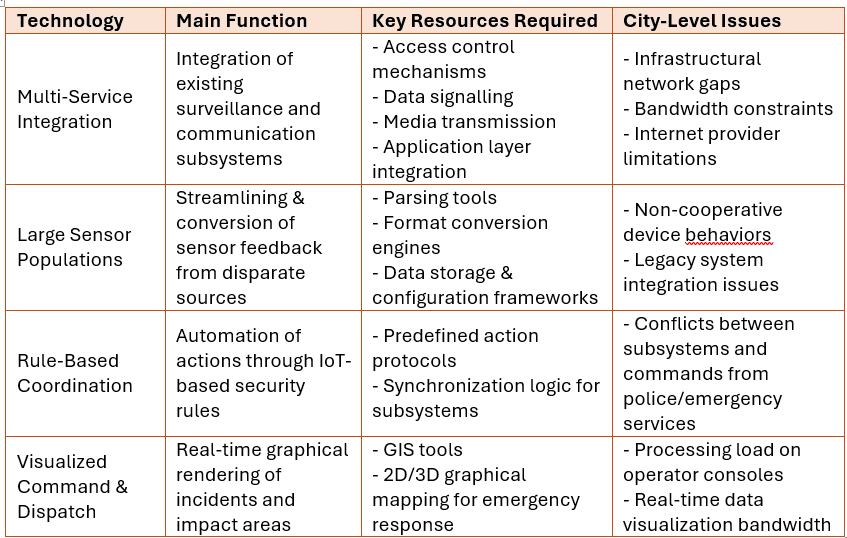
Tenets of a Basic Camera Strategy
A legally compliant and ethically grounded surveillance strategy must adhere to the following:

The Surveillance Ecosystem
Modern surveillance includes a network of:
·CCTV feeds (including ANPR, FRT, Object Recognition)
·Body-worn cameras
·Vehicle-mounted mobile cameras
·Drones and UAVs
Components of a Strategic Surveillance Vision
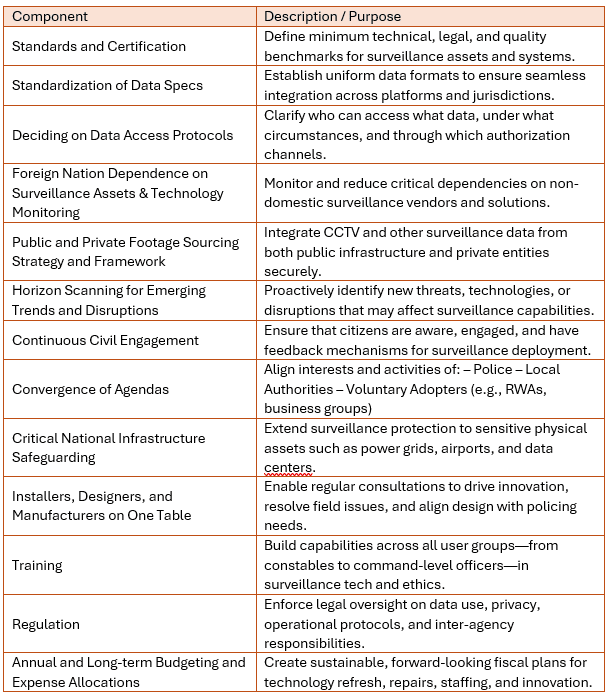
In-house Surveillance Artifacts Maintenance and Monitoring: Key Recommendations
To reduce dependency on third party players, it is recommended that the Police Organisation itself have a core Technical Team for Surveillance Asset Management (SAM). The following is suggested:
- Creation of a Surveillance Asset Management (SAM) Corps
- Drafting a Long-Term Surveillance Strategy [Suggested through half-day leader roundtables].
- Transition to SAM-driven Surveillance [Moving from SHO-centric to professionalized surveillance teams.]
Organizational Structure and Governance

It is proposed that the entire Surveillance Grid will be inof the DCP-Crimes or equivalent officer.However, the Call Centre Operations may be centralized in any one place for all Commissionerates
Level Wise Roles and Responsibilities
Given below is the Unit HQ level and SDPO or Zone wise roles and responsibilities of SAM Teams recommended.
While new camera funding across various types will be uniformly shared across all levels, other key responsibility areas will be clearly demarcated
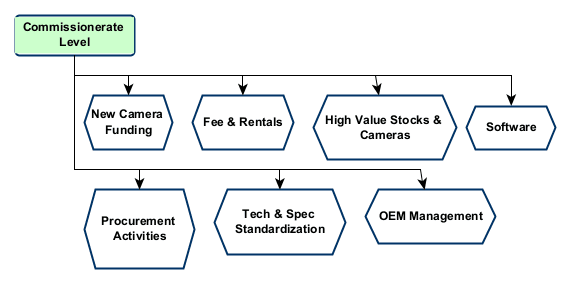
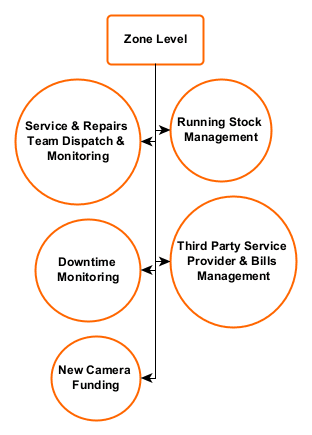
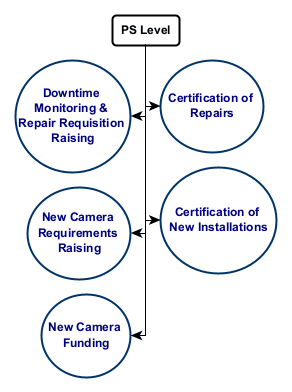
Centralized Ticketing & Repair Model

It is proposed that the entireup of CC Camera Team / Sys Admins attached to PS etc. will all be managed and mobilized like in DIAL 100.
SLAs and KPIs will be managed, and analytics generated centrally. How the Ticketing System shall work is given in the infographic below:
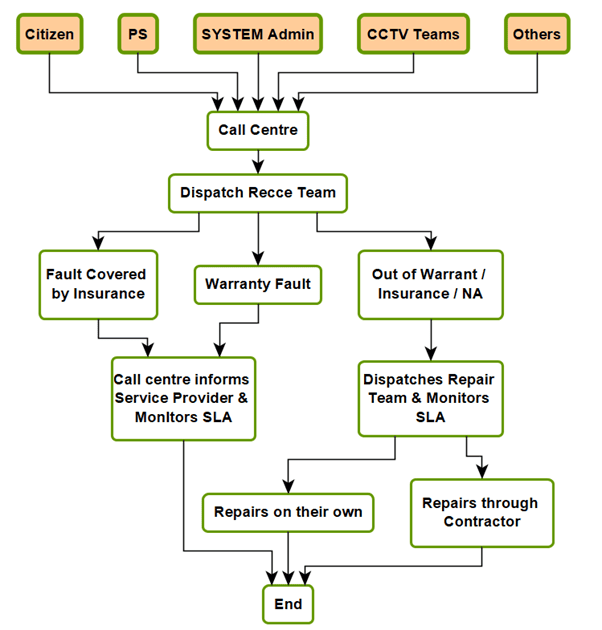
Tools & Infrastructure for SAM Teams
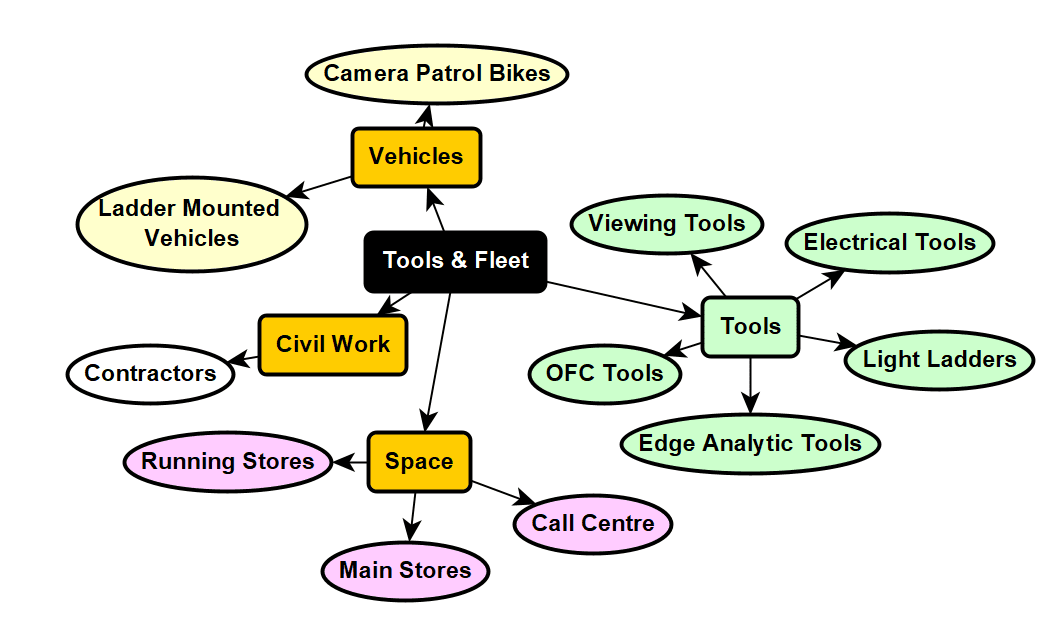
SAM Team other critical functions

The following are the ongoing critical functions of the SAM team and leadership:
•Asset Coding & Linking with DB
•Unique Pole Number-Every Pole should have a easily identifiable pole number.
•Unique Camera Number
•Code based Classification & Warranty Management-Camera Code based or Mac ID based Classification & Warranty Management
•Adopt a Camera Scheme
•Programmes to be run to Fund Surveillance Infra
•Research & Studies Tie Ups for horizon scanning. Should include:
•Cost reduction strategies
•Surveillance Grid Efficacy Studies
•SOP and current Protocols Efficacy Study
•Full Time Marketing Team to generate funds for camera operations
•CSR Fund Mobilization
•Scheme Fund Mobilization
•Direct Citizen Donations
Camera Deployment Prioritization
On the matter of where all should a camera be placed and how to prioritize repair and installation of the same, the following table may be considered:
Location Checklist
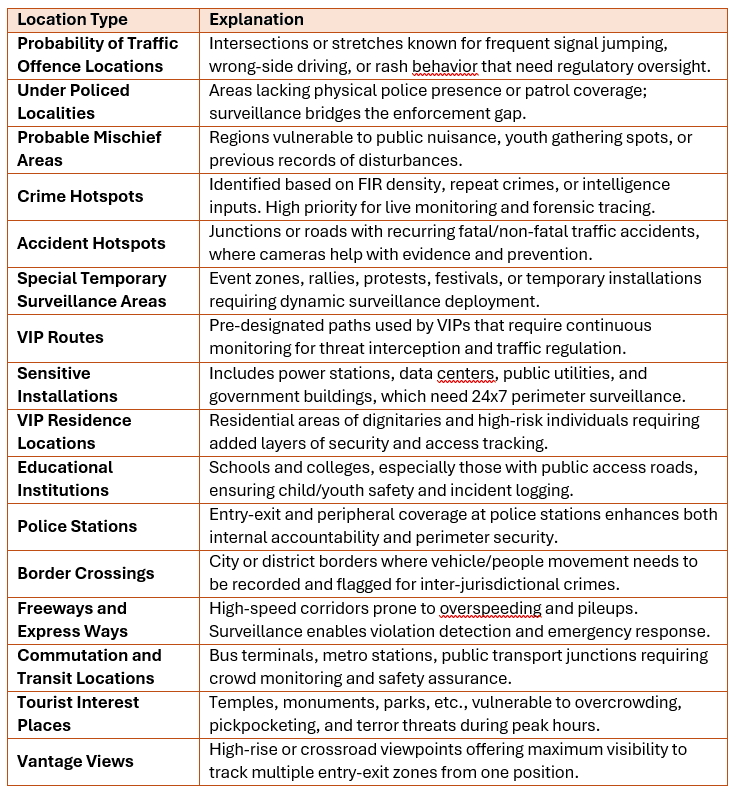
Operational Challenges with CCTV Cameras
Technical Committees and Procurement Teams should be aware of the challenges that CC TV Cameras pose and take preventative measures to ensure that police department is not saddled with poor quality cameras. Some issues are as given below:
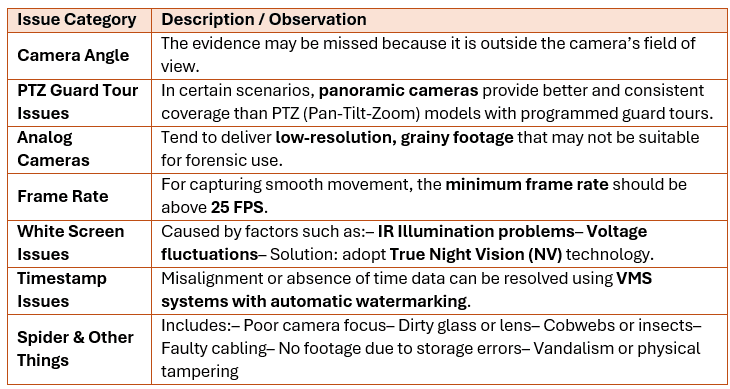
Conclusion
For police organizations aiming to modernize surveillance infrastructure, working on a City/ State Surveillance Strategy will result in clarity, long term savings and greater crime solving efficiencies. The integration of a Surveillance Asset Management Corps, coupled with centralized repair protocols, funding strategies, and deployment prioritization, ensures a scalable approach for future-ready urban policing. Contact GFI for support in planning your city surveillance strategy now.
Download the pdf version of this BLOG post here


